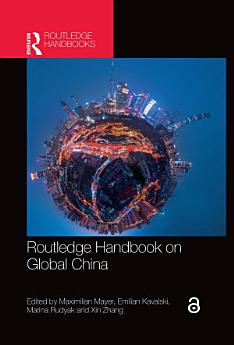Routledge Handbook on Global China
About this ebook
The Handbook also identifies and avoids epistemic traps that hinder the understanding of Global China, such as othering and strategic narcissism. It suggests five analytical frameworks related to relationality, global capitalist processes, language and discourse power, planetary- scale modernization and experimentalism to guide future research. By adopting these frameworks, researchers can gain a deeper understanding of the multifaceted factors shaping Global China within the broader global context of cooperation, competition and crisis.
Chapter 21 of this book is freely available as a downloadable Open Access PDF at http://www.taylorfrancis.com under a Creative Commons [Attribution-Non Commercial-No Derivatives (CC BY-NC-ND)] 4.0 license.
About the author
Maximilian Mayer, Assistant Professor of International Relations and the Global Politics of Technology at the University of Bonn, Germany.
Emilian Kavalski, NAWA Chair Professor at the Jagiellonian University in Krakow, Poland.
Marina Rudyak, Assistant Professor at the Institute of Chinese Studies at Heidelberg University, Germany.
Xin Zhang, Associate Professor, School of Politics and International Relations, East China Normal University, China.








